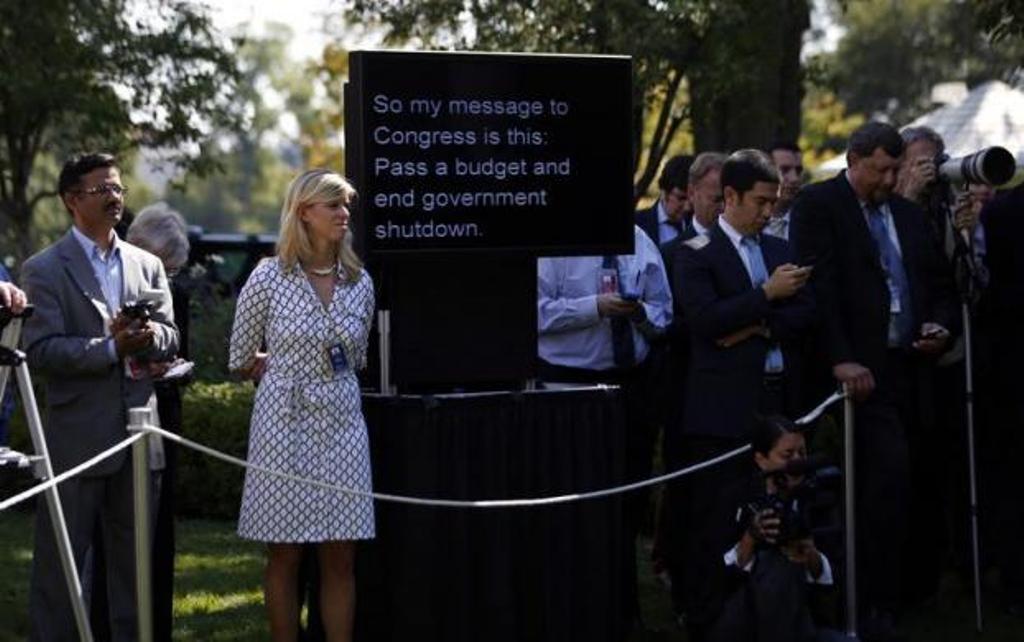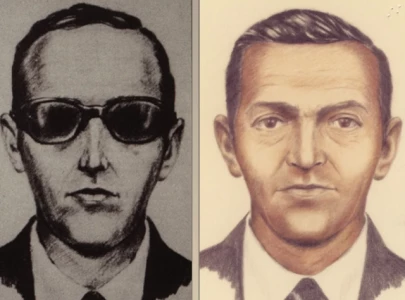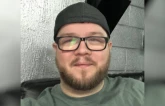
Obama, meanwhile, sent Wall Street a blunt warning that it should be very worried about a political crisis that has paralyzed the federal government and could yet trigger a US debt default.
The president met for more than an hour with Republican House Speaker John Boehner, Senate minority leader Mitch McConnell, Senate Democratic leader Harry Reid and House Democratic boss Nancy Pelosi.
But there was no sign that the talks made headway in ending a dispute that has sent hundreds of thousands of federal workers home, shuttered museums and national parks and threatens to dampen already sluggish economic growth.
"The president reiterated one more time that he will not negotiate," Boehner said, emerging into a warm Washington night after the West Wing talks.
Obama said earlier in an interview with CNBC that he would not negotiate on budget matters until Republicans had passed a short term bill to fund the government and acted to raise the $16.7 trillion dollar US debt ceiling - a move that must happen within weeks or Washington could default on its obligations for the first time.
Democrats have repeatedly blocked Republican House funding bills that seek to dismantle or delay Obama's signature health care reform bill.
Reid emerged from the talks complaining at Boehner's attitude, and vowing never to allow Republicans to overturn the health care law.
"We are locked in tight on Obamacare," Reid said.
Obama earlier said he was "exasperated" by the budget impasse in Congress, in an interview apparently designed to pressure Republicans by targeting the financial community.
Obama was asked in the interview whether Washington was simply gripped by just the latest in a series of political and fiscal crises which reliably get solved at the last minute.
In unusually frank comments on issues that could sway markets, Obama warned that investors should be worried.
"This time's different. I think they should be concerned," Obama said. "When you have a situation in which a faction is willing potentially to default on US government obligations, then we are in trouble."
Obama said he would not negotiate until House lawmakers pass a temporary financing bill and raise the debt ceiling.
"If and when ... that vote takes place and the government reopens, and if and when they vote to make sure Congress pays our bills on time so America does not default on costs it's already accrued, then I am prepared to have a reasonable, civil negotiation around a whole slew of issues," Obama said.
The president warned it would set a terrible precedent to allow lawmakers of any party to hold a White House to ransom over raising the debt ceiling.
"Absolutely I am exasperated, because this is entirely unnecessary," Obama said.
Obama wants a straightforward temporary spending bill to end the first shutdown in 17 years, while Tea Party Republicans have repeatedly tied the measure to halting so-called Obamacare."
With neither side willing to budge, hopes of an early exit to the shutdown are fading.
"Most of the time you can see an end game," Republican Senator Johnny Isakson told MSNBC. "Right now there's no end game in sight."
Some signs of incremental movement did emerge, with Democrats pledging to appoint negotiators to thrash out a long-term budget -- provided that the Republicans agree to an immediate six-week federal spending measure with no anti-Obamacare provisions.
Reid complained that Boehner was only willing to negotiate on the terms of a short-term funding bill.
Meanwhile, European Central Bank chief Mario Draghi had warned Wednesday that a US shutdown "is a risk if it is protracted."
"It would be a risk not only for the US, but also the world economy," Draghi said.
Earlier, Obama had gathered a group of high flying CEOs, apparently hoping they would pressure Boehner to pass a straight temporary funding bill.
Goldman Sachs boss Lloyd Blankfein warned that America was getting onto dangerous ground by flirting with not raising the debt ceiling.
A previous period of brinkmanship on the issue badly hit the US credit rating.
"There's a precedent for a government shutdown, there's no precedent for a default," he said after meeting Obama.
Furious tourists meanwhile are locked out of Washington museums and monuments, as well as national parks and landmarks like the Statue of Liberty in New York. Cancer research and treatment at the world-class National Institutes of Health has ground to a halt.
The fallout has already caused Obama to shorten his long-planned Asia trip, scrapping stops in Malaysia and the Philippines that were due to begin this weekend, so he could attend to the crisis at home.
The president's attendance at regional summits in Indonesia and Brunei was also in doubt.


1732538123-0/BeFunky-collage-(90)1732538123-0-165x106.webp)

1732536148-0/ariana-(1)1732536148-0-165x106.webp)
1732518687-0/Copy-of-Untitled-(78)1732518687-0-270x192.webp)











COMMENTS
Comments are moderated and generally will be posted if they are on-topic and not abusive.
For more information, please see our Comments FAQ